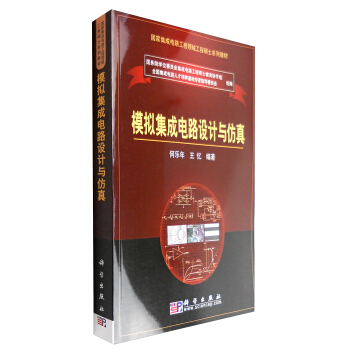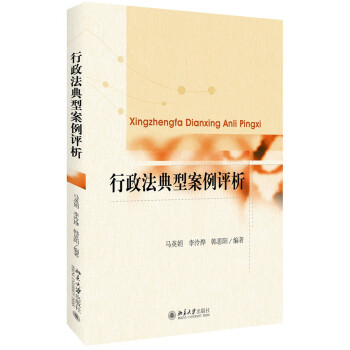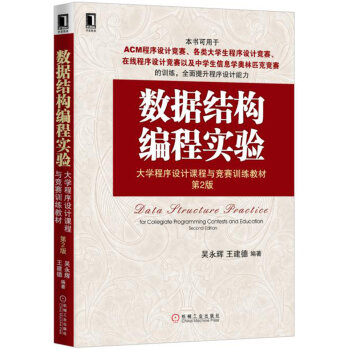![英美散文选读(二)(第二版)/新基点全国高等院校英语专业本科系列规划教材·人文素养子系列 [English Essay Reading(2)(Second Edition)]](https://pic.windowsfront.com/11526019/5410ee38N0fd4ed03.jpg)

具体描述
内容简介
《英美散文选读(二)(第二版)/新基点全国高等院校英语专业本科系列规划教材·人文素养子系列》与《选读(一)》相比,所选的篇章在语言和内容上难度都更大,长度也有所增加。因此,供正式讲授的课文一共有十二篇,每篇可用6课时讲授(包括讲解练习)。这些篇章均出自英美名家之手,涉及的主题也多种多样。然而它们共同的特点就是观点新颖、视角独特、行文流畅,用词精巧准确,论证符合逻辑,因此可供写作范文之用。每篇课文前均有课前讨论的一些名言,与课文内容相关,可引发学生对课文主题进行深入思考。课文后练习的编排与《选读(一)》体例类似,建议采用《英美散文选读(二)(第二版)/新基点全国高等院校英语专业本科系列规划教材·人文素养子系列》的教师把重点放在讨论课文内容和作者写作技巧的问题上,同时也不要忽略难句释义练习。对课文中出现的生词,建议教师要结合其使用语境来教,并且注意一词多义现象。在讲解完每一课后,最好能总结一下要点和思维脉络,以使学生既见“木”又见“林”。作者简介
蒋显璟,对外经济贸易大学英语学院教授,2001-2007年担任语言文学系主任,毕业于北京大学,师从名师赵萝蕤教授专攻英国浪漫主义文学,获博士学位。主要负责英语专业本科生的“散文分析”课的建设与教材编写工作,担任英语专业研究生的“英国文学”、“英语诗歌”和“浪漫主义”等课程的教学工作。主要的研究成果有发表在国内核心期刊上关于英国文学和英美文学批评的论文和几部译著,其中包括论文《科学与神话:弗莱理论中的不谐和》、《重读(无名的裘德)——希腊精神与希伯来精神的冲突》;译著《双重火焰》、《简朴生活读本》、《天才十种》和《金钱关系》等。此外,在2004-2006年间,蒋显璟教授在《英语学习》杂志上的《经典文选》栏日中还发表了一系列精选的英美经典散文译文。内页插图
目录
Unit One Knowledge and Wisdom NNUnit Two Habit
Unit Three The Scientist as Rebel
Unit Four Predictable Crises of Adulthood
Unit Five The Evolution of Good and Bad
Unit Six Faces of the Enemy
Unit Seven Gibbon
Unit Eight Philistines and Philistinism
Unit Nine The American Scholar
Unit Ten A Professional Malaise
Unit Eleven Hebraism and Hellenism
Unit Twelve The Gift of Tongues
Supplementary Reading
Translation of Selected Sentences
精彩书摘
The ten years of Gibbon's life in London afford an astonishing spectacle of interacting energies. By what strange power did he succeed in producing a masterpiece of enormous erudition and perfect form, while he was leading the gay life of a man about town, spending his evenings at White's or Boodle's or the Club, attending Parliament, oscillating between his house in Bentineck Street, his country cottage at Hampton Court, and his little establishment at Brighton, spending his summers in Bath or Paris, and even, at odd moments, doing a little work at the Board of Trade, to show that his place was not entirely a sinecure? Such a triumph could only have been achieved by the sweet easonableness of the eighteenth century. "Monsieur Gibbon n'est point mon homme," said Rousseau. Decidedly ! The prophet of the coming age of sentiment and romance could have nothing in common with such a nature. It was not that the historian was a mere frigid observer of the golden mean - far from it. He was full of fire and feeling. His youth had been at moments riotous - night after night he had reeled hallooing down St. James's Street. Old age did not diminish the natural warmth of his affections; the beautiful letter - a model of its kind - written on the death of his aunt, in his fiftieth year, is a proof of it. But the fire and the feeling were controlled and coordinated. Boswell was a Rousseauite, one of the first of the Romantics, an inveterate sentimentalist and nothing could be more complete than the contrast between his career and Gibbon's. He, too, achieved a glorious triumph; but it was by dint of the sheer force of native genius sserting itself over the extravagance and disorder of an agitated life - a life which, after a desperate struggle, seemed to end at last in darkness and shipwreck.With Gibbon there was never any struggle: everything came naturally to him - learning and dissipation, industry and indolence, affection and scepticism - in the correct proportions; and he enjoyed himself up to the very end.
3 To complete the picture one must notice another antithesis: the wit, the genius, the massive intellect, were housed in a physical mould that was ridiculous. A little figure, extraordinarily rotund, met the eye, surmounted by a top-heavy head, with a button nose, planted amid a vast expanse of cheek and ear, and chin upon chin rolling downward. Nor was this appearance only; the odd shape reflected something in the inner man. Mr. Gibbon, it was noticed, was always slightly over-dressed; his favourite wear was flowered velvet. He was a little vain, a little pompous; at the first moment one almost laughed; then one forgot everything under the fascination of that even flow of admirably intelligent, exquisitely turned, and most amusing sentences. Among all his other merits this obviously ludicrous egotism took its place. The astonishing creature was able to make a virtue of absurdity.
Without that touch of nature he would have run the risk of being too much of a good thing; as it was there was no such danger; he was preposterous and a human being.
4 It is not difficult to envisage the character and figure; what seems strange, and remote, and hard to grasp is the connection between this individual and the decline and fall of the Roman Empire. The paradox, indeed, is so complete as to be almost romantic. At a given moment - October 15, 1764 - at a given place - the Capitoline Hill, outside the church of Aracoeli - the impact occurred between the serried centuries of Rome and Edward Gibbon. His life, his work, his fame, his place in the history of civilization, followed from that circumstance. The point of his achievement lay precisely in the extreme improbability of it. The utter incongruity of those combining elements produced the masterpiece - the gigantic ruin of Europe through a thousand years, mirrored in the mind of an eighteenth- century English gentleman.
……
前言/序言
用户评价
作为一名对英美文学有着浓厚兴趣的学生,我一直在寻找一本能够系统性地介绍英美散文发展的教材。《英美散文选读(二)(第二版)》在这方面做得非常出色。它不仅仅是简单地罗列了几篇优秀的散文,而是试图构建一个清晰的英美散文发展脉络。从启蒙时代的理性主义,到浪漫主义的个人情感表达,再到维多利亚时期的社会批判,以及20世纪的现代主义和后现代主义的探索,这本书几乎涵盖了英美散文发展的各个重要时期和代表作家。更重要的是,教材在选文上具有很强的代表性,每一篇文章都能够清晰地展现该时期该流派的特点。而且,教材的导读部分也非常有价值,它不仅仅介绍了作者的生平,更深入地剖析了文章的创作背景、思想渊源,以及它在文学史上的地位和影响。这让我能够更深刻地理解每一篇散文的价值,不再是孤立地去欣赏某一篇作品,而是能够将其置于整个文学史的语境中去理解。这种宏观的视角,对于我日后进行文学研究,将是极其宝贵的财富。我常常在阅读完一篇文章后,会去查阅相关的文学史资料,进一步印证教材中的观点,从而加深自己的理解。
评分我想从一个更实际的角度来评价这本《英美散文选读(二)(第二版)》。作为一名英语专业的学生,我们不仅要学好语言,更要具备扎实的专业知识和人文素养。《英美散文选读(二)(第二版)》在这方面无疑做到了很好的平衡。它所选的文章,不仅语言优美,而且内容丰富,涉及到了历史、哲学、艺术、社会等多个领域。读这些文章,我仿佛在进行一场跨学科的知识探索,不仅提升了我的英语水平,更开阔了我的视野,增长了我的见识。而且,教材的注释和导读部分,也充满了学术的严谨性。它不仅仅是简单地解释词句,而是会引用相关的学术观点,介绍相关的文学理论,甚至会涉及到一些历史事件的背景。这让我感觉自己不仅仅是在学习语言,更是在进行一场严谨的学术训练。我常常在阅读完一篇文章后,会尝试去搜集相关的学术资料,来验证教材中的观点,从而进一步深化自己的理解。这种学习方式,不仅让我对所学内容有了更深刻的认识,也培养了我独立研究的能力。
评分从这本书的封面设计就能感受到一种扑面而来的学术气息,那种沉静而不失力量的美感,与书中内容给我的感受不谋而合。作为一名希望在学术研究领域有所建树的学生,我对教材的要求自然是极高的,它不仅要能教会我知识,更要能培养我的批判性思维和独立思考的能力。《英美散文选读(二)(第二版)》在这方面做得相当出色。它所选的散文,绝非那些泛泛而谈的流水账,而是真正能够引发读者深度思考的精品。无论是鲁迅先生的《杂文集》中那些犀利深刻的社会批判,还是林语堂先生的《吾国吾民》中对民族性的幽默而又深刻的剖析,亦或是余光中先生的《乡愁》系列中那份浓烈而深沉的思乡之情,都充满了智慧的光芒和人性的温度。更重要的是,教材在对这些文章的解读上,并没有止步于简单的词句解释,而是深入到了文章的结构、论证方式、修辞技巧,乃至作者创作时的时代背景和个人经历。每一次的阅读,都像是在进行一次精密的解剖,让我得以窥见作者构思的精妙,语言的魔力,以及思想的深度。我尤其欣赏的是,教材鼓励我们不仅仅是被动地接受信息,而是主动地去质疑、去比较、去评价。在课堂讨论中,同学们常常因为对同一篇文章的不同理解而展开热烈的辩论,这让我深刻体会到了“一千个人眼中有一千个哈姆雷特”的真谛。这种开放式的讨论环境,极大地激发了我的求知欲和独立思考的能力,让我不再满足于书本上的答案,而是开始主动地去探索和发现。
评分坦白说,拿到这本《英美散文选读(二)(第二版)》的时候,我并没有抱有多大的期待。毕竟,市面上同类型的书籍实在太多了,而真正能够脱颖而出的却寥寥无几。然而,这本书却给了我一个大大的惊喜。它最大的特点,我认为在于其“人文关怀”的子系列定位。这不仅仅是一本语言学习的教材,更是一扇了解英美社会文化、历史发展、价值观念的窗口。书中所选的文章,很多都涉及到了人性的弱点、社会的变迁、时代的困境,以及个体在其中的挣扎与思考。读这些文章,我仿佛穿越了时空,亲身经历了那些历史的洪流,感受到了不同时代人们的情感与命运。比如,温斯顿·丘吉尔关于战争与和平的演讲,不仅是语言艺术的典范,更是对人类生存状态的深刻反思。而艾丽丝·门罗那些细腻入微的人物刻画,则让我看到了女性在社会变迁中的复杂情感和独立追求。教材的注释和导读部分,也紧紧围绕着“人文素养”这一核心,引导我们去理解文章背后的文化逻辑和价值取向。它鼓励我们从不同角度去审视问题,培养同理心,从而更好地理解自己,理解他人,理解这个世界。我常常在阅读后,会陷入沉思,思考文章所探讨的议题与我们当下社会生活的关联,这让我觉得学习变得更加有意义,也更加贴近生活。
评分这是一本让我眼前一亮的书。作为一名正在攻读英语专业的学生,我一直在寻找能够真正提升我阅读理解能力和文学鉴赏水平的教材。之前接触过不少散文集,但很多要么过于浅显,要么选文范围过于狭窄,无法全面地反映英美散文的魅力。而这本《英美散文选读(二)(第二版)》则彻底改变了我的看法。它不仅在选文的广度上做得相当出色,涵盖了从18世纪到21世纪的众多经典作家和代表作品,更在选文的深度上做足了功夫,每一篇文章都经过精心挑选,能够代表某个时期、某种风格的最高水准。更值得称赞的是,教材的编排也十分用心。每一篇散文都配有详尽的背景介绍、生词注释和难点解析,这对于我们这些非母语学习者来说,简直是雪中送炭。我尤其喜欢的是,教材并没有仅仅停留在字面意思的翻译和解释,而是深入探讨了文章的艺术手法、文化背景以及作者的思想情感,引导我们去思考、去体会、去领悟。读完一篇文章,我不仅能够理解它的内容,更能体会到作者是如何运用语言来构建情感、传递思想的。这对于我日后写作和口语表达都将大有裨益。而且,书中收录的散文风格多样,有记叙性的、议论性的、抒情性的,还有一些具有哲思色彩的,这极大地拓宽了我的阅读视野。我常常在阅读过程中,感受到一种跨越时空的对话,与那些伟大的灵魂进行心灵的交流。这种体验是任何其他形式的学习都无法比拟的。总而言之,这本教材不仅仅是一本学习资料,更像是一位循循善诱的良师益友,陪伴我在英美散文的海洋中自由遨游,不断汲取养分,提升自我。
评分这本书给我最大的感受是,它不仅仅是一本学习材料,更像是一位经验丰富的导师,指引我在英美散文的海洋中航行。作为一名正在努力提升自己语言能力的英语专业学生,我深知阅读的重要性,而一本好的散文选读教材,更是事半功倍。这本书最大的亮点在于其选文的“原汁原味”。它没有为了迎合中国读者的习惯而对原文进行过度的“本土化”处理,而是尽可能地保留了原文的风格和韵味。这对于我们学习地道的英语表达,感受英美文化的独特魅力,有着至关重要的作用。同时,教材的注释也十分专业,不仅仅是对生词的解释,还包括了对一些俚语、习语、文化背景的深入解读。这让我能够更准确地理解作者的意图,也能够更深入地体会到语言的魅力。我尤其喜欢的是,教材在某些篇章后,还会提供一些思考题,引导我们去分析文章的主题、情感、艺术手法等。这些问题往往具有一定的深度和启发性,能够促使我去主动思考,而不是仅仅被动地接受信息。这种互动式的学习方式,极大地提升了我的学习效率和学习兴趣。
评分我必须承认,在收到这本《英美散文选读(二)(第二版)》之前,我一直对“散文”这个文体抱有一些刻板印象,认为它不过是“写点随笔、感悟”而已,缺乏结构性和深度。然而,这本书彻底颠覆了我的认知。它所选的散文,很多都具有非常严谨的结构和深刻的思想内涵。例如,一些议论性散文,其论证逻辑清晰,观点鲜明,丝毫不亚于一篇优秀的学术论文。而一些叙事性散文,虽然语言优美,但其背后所蕴含的人生哲理,同样发人深省。教材的导读部分,也着重强调了这些散文的结构特点和论证方式,引导我们去分析作者是如何一步步地构建起自己的思想体系,如何运用语言来影响读者的。这对于我日后进行学术写作,将是极大的启发。我常常在阅读一篇散文后,会尝试去模仿其结构和论证方式,来组织自己的写作。这种“学以致用”的学习方式,让我觉得学到的知识不再是死的,而是鲜活的,能够真正地应用到实践中去。而且,教材的排版设计也很人性化,大字体、清晰的排版,以及适度的留白,都让阅读过程变得更加舒适,也更容易集中注意力。
评分我一直认为,一本好的教材,应该能够点燃学生学习的热情,而不是扼杀它。《英美散文选读(二)(第二版)》无疑做到了这一点。它所选的文章,题材非常广泛,风格也多种多样。从感人至深的个人回忆,到发人深省的社会评论,再到充满想象力的科幻片段,应有尽有。最让我惊喜的是,很多文章读起来都非常有画面感,语言优美而富有张力,仿佛能够带领我穿越时空,亲身经历那些故事。我尤其喜欢教材中收录的一些幽默风格的散文,读起来让人忍俊不禁,同时又能从中体会到作者的智慧和洞察力。而且,教材的注释也做得非常贴心,不仅仅是简单的词义解释,还包括了对一些文化背景、典故的说明。这让我能够更准确地理解作者的意图,也能够更好地欣赏语言的魅力。我常常在阅读完一篇散文后,会尝试着去模仿其写作风格,来创作自己的短文。这种“学以致用”的学习方式,让我觉得学习不再是一件枯燥的事情,而是充满乐趣和创造力的过程。
评分这本书给我带来的最大的改变,就是让我开始真正“欣赏”散文。在此之前,我对散文的理解可能还停留在“写得好”的层面,但这本书让我开始理解“为什么好”,以及“如何好”。它不仅仅是一篇篇独立的文章组合,更是一部展现英美文学发展脉络的画卷。教材的选文跨度很大,从早期启蒙时期的理性光辉,到浪漫主义的激情澎湃,再到现代主义的实验与反思,以及后现代的多元与解构,几乎涵盖了英美散文发展的各个重要阶段和流派。而且,每一篇选文都非常有代表性,能够清晰地展现该时期该流派的特点。更让我受益匪浅的是,教材在每篇文章的导读部分,不仅仅介绍了作者的生平,更深入地剖析了文章的写作背景、思想渊源,以及它在文学史上的地位和影响。这让我对每一篇散文都有了一个更宏观、更深入的认识,不再是孤立地去欣赏某一个句子或段落,而是能够将其置于整个文学史的语境中去理解。这种“大局观”的培养,对于我日后进行文学评论和研究,将是极其宝贵的财富。此外,教材对语言的讲解也十分到位,它不仅仅局限于词汇和语法,而是深入到语篇分析、修辞策略等层面,让我能够更深刻地理解作者是如何运用语言来达到特定的艺术效果的。
评分这本书绝对是英语专业学生不可多得的宝藏。作为一名热爱阅读的学生,我深知一本好的教材对于培养阅读兴趣和提升阅读能力的重要性。《英美散文选读(二)(第二版)》无疑做到了这一点。它所收录的文章,题材广泛,风格各异,从哲理深刻的议论,到感人肺腑的抒情,再到生动有趣的记叙,应有尽有。最让我惊喜的是,教材在选文上并没有刻意追求晦涩难懂的“高大上”,而是更注重文章的可读性、思想性和艺术性,很多文章读起来朗朗上口,引人入胜。同时,教材对文章的注释也十分详尽,不仅解释了生词和短语,还对一些文化典故、历史背景进行了说明,这极大地降低了阅读难度,让我能够更专注于文章本身的内容和思想。我尤其喜欢的是,教材鼓励我们进行“主题式”阅读,将同一主题下的不同文章进行对比阅读,从而更深入地理解某一议题在不同作家、不同时代下的不同解读。例如,关于“孤独”这一主题,书中就收录了不同风格的文章,有的充满了忧郁和绝望,有的则展现了在孤独中获得的宁静和力量。通过对比阅读,我不仅更深刻地理解了“孤独”这一复杂的情感,也学会了如何从不同的视角去分析和解读文学作品。
评分干净,卫生就好,正版就好,更便宜就好了
评分考研指定用书,但应试价值不大,看了也不考,但作为文学素养和学术熏陶可做参考。
评分速度很快。
评分速度很快。
评分正版书,买3本,和家里娃娃一起学习。难度不小,大家一起讨论!
评分这本书的书角也破了,头一次见京东用这么简陋的包装,没加任何保护层。书籍本来应该好好爱护,可是却对它这样子,太失望了
评分好。。。。。。。。。。。。。。。。。。
评分纸质不错,略贵
评分考研指定用书,但应试价值不大,看了也不考,但作为文学素养和学术熏陶可做参考。
相关图书
本站所有内容均为互联网搜索引擎提供的公开搜索信息,本站不存储任何数据与内容,任何内容与数据均与本站无关,如有需要请联系相关搜索引擎包括但不限于百度,google,bing,sogou 等,本站所有链接都为正版商品购买链接。
© 2026 windowsfront.com All Rights Reserved. 静流书站 版权所有

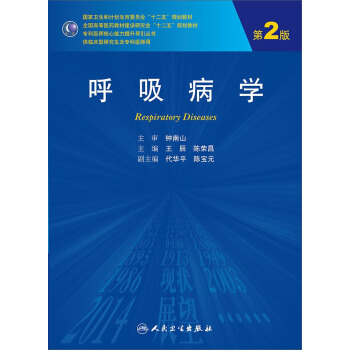
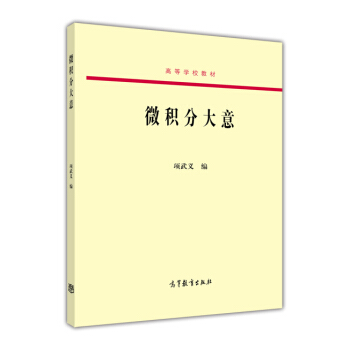
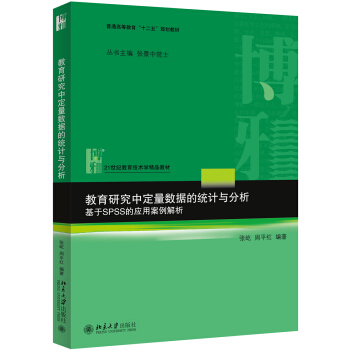
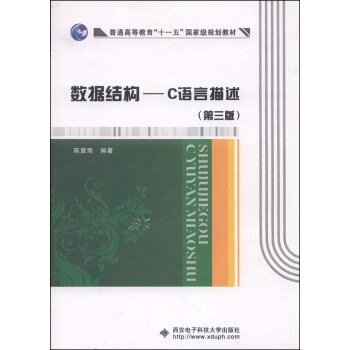

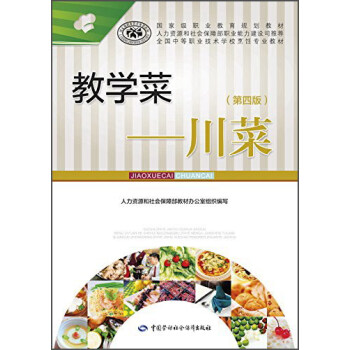

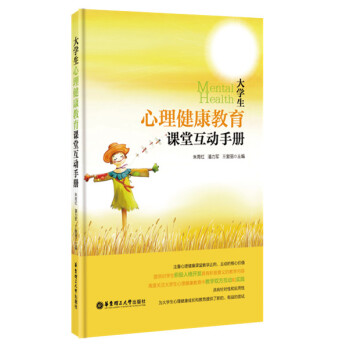
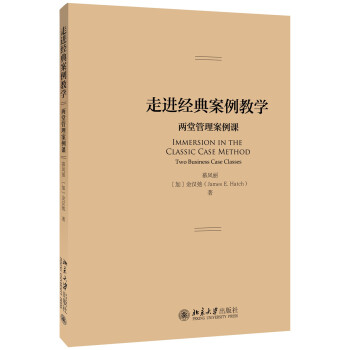
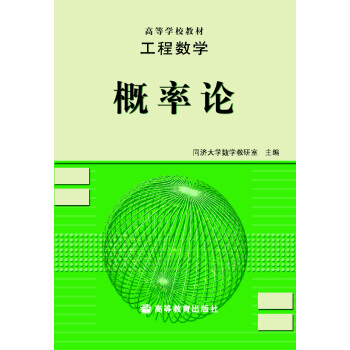
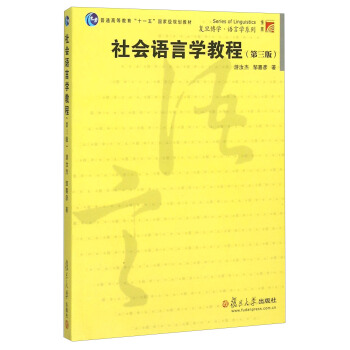
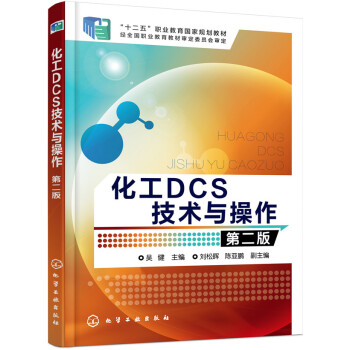
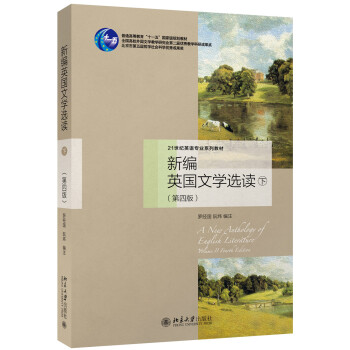
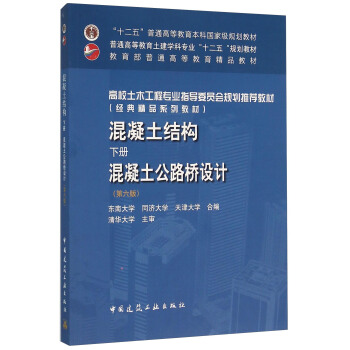
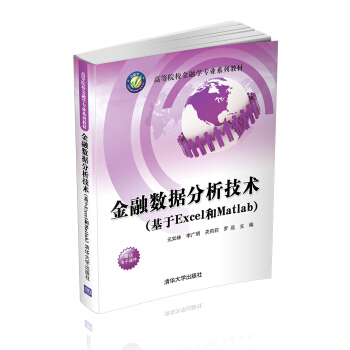
![会展策划理论与实务 [Theory And Practice Of Exhibition Planning] pdf epub mobi 电子书 下载](https://pic.windowsfront.com/11956502/576cf019N46a33676.jpg)
